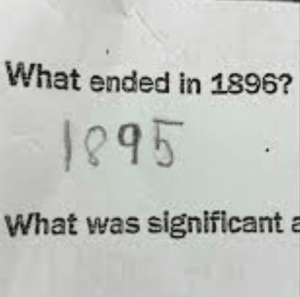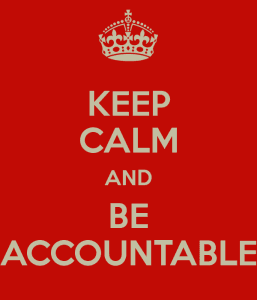Today (March 1) we’re joined by some special guests! A big welcome to IT professionals from Microsoft’s TechNet Virtual Conference 2016, where I’m doing a presentation titled “Top Tips From A Headhunter” to help IT folks deal with career crises.
For those new to Ask The Headhunter, I invite you to check out Ask The Headhunter In A Nutshell: The short course. For more in-depth methods to handle your own career challenges, please also see 600 Editions: The Best of Ask The Headhunter! Related to what I discussed in the video you just watched on TechNet: Please! Stop Networking! Advance your career by learning to “talk shop” with people!
The ATH portion of the conference is March 1, 11:30am PT with Q&A to follow. If you’re reaching this in time, please join us: enter the event here.
Microsoft Week! Save 25% on any Ask The Headhunter PDF books this week only! Use discount code=MSFT when checking out! This offer is limited-time only! Save now!
In the March 1, 2016 Ask The Headhunter Newsletter, readers seek wisdom on all manner of things, including how to make big bucks! File under Gimme a break… but we try to cover it all! Is this week’s Q&A tongue-in-cheek? You decide…
Question
I love speaking in public, giving presentations, leading group discussions, and teaching classes. If I were given the challenge of speaking in front of 500 people with 60 minutes notice, I would rub my hands together with glee. Please help me understand how to turn my talents into $100,000 a year.
Nick’s Snappy Reply
Ask The Headhunter: Where your dreams come true! Ask yourself, What company or organization could make a lot of money and profit by having you do those things you love? That’s who to go to about a job. You need to come up with a mini-business plan for each company you target.
- What problem or challenge do they face?
- How can you tackle it to produce profit?
- What’s the best way to explain it to the company?
- Who’s the best person to explain it to?
- How can you track down people that “best person” knows or works with — people who can introduce you?
You’re not going to get hired to do what you love. You’ll get hired to do what you love if you can show how that will pay off to an employer. That’s your real challenge. You must figure it out and communicate it, because no company is going to figure it out for you. For more about this, see The Basics, then rub your hands with glee!
Question 2
I worked in San Francisco and Silicon Valley for 25 years recruiting. I have references from great companies. No one seems to be interested in my valuable experience. In fact, I was told no one would hire me in Silicon Valley. I need someone to check my experience out. I would very much appreciate a referral that could help me track these rumors down.
Nick’s Snappy Reply
Ah, let me get out my little black book… You’d need to hire a private detective. I don’t know any. Just because someone told you that you’d never get hired in Silicon Valley doesn’t mean anyone else feels that way. If you’re concerned about your references, you might ask a hiring manager at any company (someone you’re friendly with) to contact them and ask them what they think of you. You might identify the problem that way, assuming you have one. In the future, Take Care Of Your References.
As for the value of your experience, please see my reply to Question 1.
Question 3
I came across your article, Wanted: HR exec with the guts not to ask for your social security number, after a local recruiter asked me for information I’m not comfortable sharing.
RECRUITER: “I need the last four of your SSN and middle initial to submit you to Company X.”
ME: “Is this absolutely needed at this stage? What is it being used for? Understandably, I’m hesitant to give out that information.”
RECRUITER: “It’s the only way you can be submitted to our client for a job. It’s part of their ATS (Applicant Tracking System) to ensure that candidates are not being double submitted.”
I guess I’m really hoping that you might offer a bit of advice — whether I’m right in thinking this is a red flag, and how I might further respond to her request and comments.
Nick’s Snappy Reply
How to Say It: Up your xiggy with a blowtorch!
Recruiters love applicants who speak the local jargon, so that should go over well. But employers have no legitimate reason to demand your SSN just so you can apply for a job. The recruiter gives away the problem when she admits the employer’s ATS needs your SSN to avoid duplicate submissions of your credentials. They use it as a hash — a unique database key to identify you. That’s how the employer avoids fee battles between recruiters who both claim they submitted you.
Lazy ATS system designers misuse a federal ID number for their own purposes. In the process, the recruiter, the employer and the ATS vendor are intimidating job seekers and putting them at risk of not getting a job over the ATS vendor’s silly database trick. Hence the need for a blowtorch.
Should you play along? That’s up to you. (A related employer trick is demanding your salary history. See Salary History: Can you afford to say NO?) It’s also up to you to hand over any 4 digits you choose, for the time being, to beat the system, and explain later to the employer if the 4 digits don’t match your actual SSN — which will matter only if you’re hired. “Someone obviously made a mistake.”
I don’t like lying. But I also don’t tolerate stupid bureaucratic tricks by employers and ATS vendors — at the expense of job seekers.
What you do is up to you, of course. What I’m suggesting could cause you problems. But what the recruiter and ATS vendor are demanding could cause you problems, too. I’m just telling you what I’d do. Always follow the instructions that come with a blowtorch.
Question 4
Should I disclose in a job interview that I applied to grad school a few weeks ago, and that if I get in I won’t be taking the job? The job interview is in about two weeks.
Nick’s Snappy Reply
First thing I’d do is buy a lottery ticket and put it in your pocket. Would you tell an employer you have that ticket in your pocket, and that if you win, you won’t need the job?
I see no reason to disclose your graduate school application, unless and until you’re faced with a choice about going to grad school. Make sense?
How would you deal with these four situations? Geez, I am on a roll! Post your comments before I slow down!
: :






